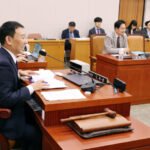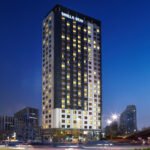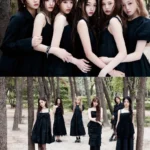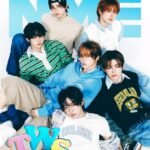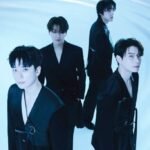The Korean economy, Asia’s fourth-largest, saw continued export growth in April
South Korea logged a current account deficit in April, ending a streak of surpluses for the past 11 months, on seasonal factors such as increased dividend payouts to foreigners, although Asia’s fourth-largest economy saw continued export growth.
The country’s current account deficit reached $290 million in April, reversing from a $6.93 billion surplus in March, Bank of Korea data showed on Tuesday.
The deficit represents Korea’s first shortfall since April 2023, when the balance stood at a deficit of $1.37 billion.
The current account is the broadest measure of Korea’s trade with the rest of the world.
In the first four months of the year, Korea’s current account posted a surplus of $16.55 billion, compared with a deficit of $7.33 billion in the year-earlier period.
The central bank attributed April’s weak performance to seasonal factors such as Korean companies’ increased dividend payments to foreign investors and smaller goods account surplus.
April’s primary income account, which tracks wages of foreign workers and dividend payments overseas, logged a shortfall of $3.37 billion, a turnaround from a $1.83 billion surplus in March.
Of the primary income account, the dividend category posted a deficit of $3.58 billion versus a surplus of $1.78 billion the month prior due to Korean firms’ increased dividend payout to foreign investors.
In the same month of 2023, the dividend category posted a deficit of $1.2 billion.
HIGHER DIVIDEND PAYOUTS EVERY APRIL
Every April, Korea posts heavy dividend payouts to foreign investors as most companies close their annual financial books at the end of December.
Tuesday’s BOK data showed the goods account had a surplus of $5.11 billion as exports increased 18% on-year to $58.17 billion while imports rose 9% to $53.1 billion.
The services account posted a $1.66 billion deficit in April, weighed by a travel account deficit of $820 million and an intellectual property right deficit of $310 million.
April’s services account deficit narrowed from a deficit of $2.43 billion the month prior.
In the financial account, Koreans’ overseas direct investments increased by $3.93 billion in April while foreigners’ investments in the country rose by $2.36 billion.
Koreans’ securities investment overseas rose by $3.51 billion while foreigners’ investment in Korean stocks and bonds increased by $5.62 billion.
By Jin-gyu Kang
josep@hankyung.com
In-Soo Nam edited this article.


